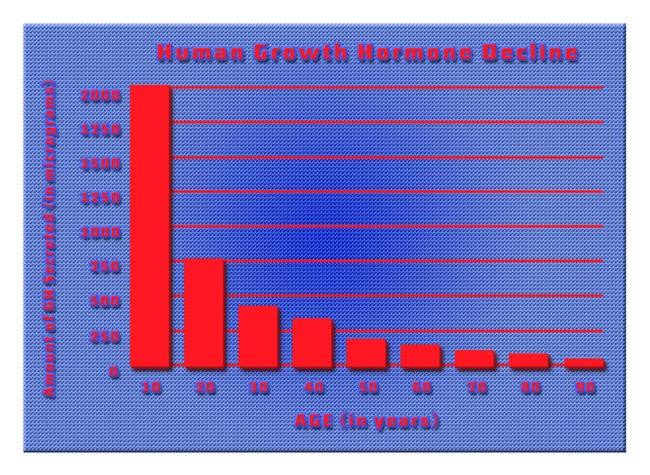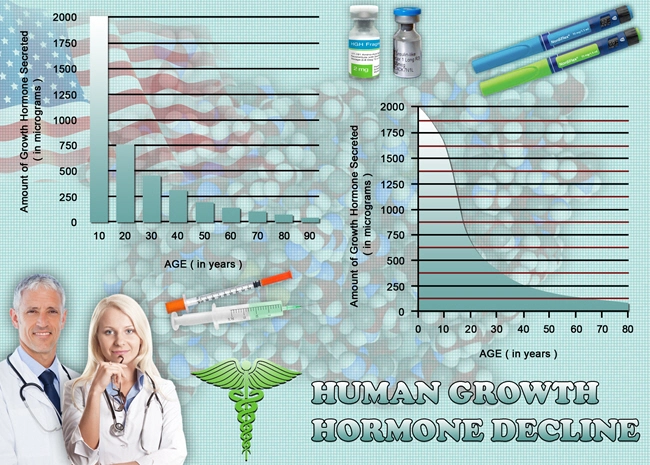
Introduction
Non-Alcoholic Fatty Liver Disease (NAFLD) represents a significant health concern among American males, often linked to obesity and metabolic syndrome. Recent research has begun to explore the potential of semaglutide, a glucagon-like peptide-1 (GLP-1) receptor agonist, in improving liver health. This article delves into the latest findings on how semaglutide may offer new hope for managing NAFLD in this demographic.
Understanding NAFLD and Its Prevalence
NAFLD is characterized by excessive fat accumulation in the liver, not caused by alcohol consumption. It ranges from simple steatosis to non-alcoholic steatohepatitis (NASH), which can progress to fibrosis, cirrhosis, and even hepatocellular carcinoma. In the United States, NAFLD affects approximately 25% of adults, with a higher prevalence among males. This condition is closely associated with obesity, type 2 diabetes, and metabolic syndrome, making it a critical public health issue.
The Role of Semaglutide in Metabolic Health
Semaglutide, initially developed for the management of type 2 diabetes, has shown promising results in weight management and cardiovascular health. As a GLP-1 receptor agonist, it enhances insulin secretion, suppresses glucagon release, and slows gastric emptying, leading to reduced appetite and caloric intake. These effects have sparked interest in its potential to address the underlying metabolic factors contributing to NAFLD.
Clinical Evidence Linking Semaglutide to NAFLD Improvement
Recent clinical trials have begun to shed light on the impact of semaglutide on liver health. A notable study published in the *Journal of Hepatology* demonstrated that semaglutide treatment led to significant reductions in liver fat content, as measured by magnetic resonance imaging-proton density fat fraction (MRI-PDFF), in patients with NAFLD. The study included a diverse cohort, but American males showed particularly robust improvements, suggesting a potential demographic-specific benefit.
Furthermore, semaglutide has been associated with improvements in liver enzymes, such as alanine aminotransferase (ALT) and aspartate aminotransferase (AST), which are often elevated in NAFLD. These biochemical markers indicate reduced liver inflammation and damage, supporting the notion that semaglutide may help reverse the progression of NAFLD.
Mechanisms of Action in Liver Health
The mechanisms through which semaglutide improves liver health are multifaceted. By promoting weight loss, semaglutide directly addresses one of the primary risk factors for NAFLD. Additionally, its effects on insulin sensitivity and glucose metabolism help mitigate the metabolic dysregulation that contributes to liver fat accumulation. Emerging research also suggests that semaglutide may have direct anti-inflammatory and anti-fibrotic effects on the liver, further enhancing its therapeutic potential.
Implications for American Males
For American males, who are at a higher risk of developing NAFLD due to lifestyle and genetic factors, the introduction of semaglutide as a treatment option could be transformative. The ability to manage both diabetes and liver health with a single medication offers a streamlined approach to care, potentially improving adherence and outcomes. Moreover, the cardiovascular benefits of semaglutide add another layer of health protection, addressing the holistic needs of patients with metabolic syndrome.
Future Directions and Considerations
While the initial findings are promising, further research is needed to fully understand the long-term effects of semaglutide on NAFLD and to optimize its use in clinical practice. Large-scale, randomized controlled trials specifically targeting American males with NAFLD are essential to confirm these preliminary results and to establish dosing and treatment protocols.
Additionally, the cost and accessibility of semaglutide remain important considerations. Efforts to ensure that this medication is available to those who need it most, particularly in underserved communities, will be crucial for its widespread adoption and impact.
Conclusion
Semaglutide represents a promising new frontier in the management of NAFLD among American males. By addressing the underlying metabolic factors and directly impacting liver health, this medication offers hope for reversing the progression of this prevalent disease. As research continues to evolve, semaglutide may become a cornerstone in the fight against NAFLD, improving the health and quality of life for millions of American men.
Contact Us Today For A Free Consultation
Dear Patient,
Once you have completing the above contact form, for security purposes and confirmation, please confirm your information by calling us.
Please call now: 1-800-380-5339.
Welcoming You To Our Clinic, Professor Tom Henderson.

- The Semaglutide Revelation: Shaping the Future of Diabetes and Weight Management [Last Updated On: February 25th, 2025] [Originally Added On: February 25th, 2025]
- The Evolution of Semaglutide: A Journey from Laboratory Observations to Life-Changing Medicine [Last Updated On: February 26th, 2025] [Originally Added On: February 26th, 2025]
- Deciphering the Dynamics of Semaglutide: An Unraveled Exploration into GLP-1 Science [Last Updated On: February 27th, 2025] [Originally Added On: February 27th, 2025]
- Grasping the Metabolic Majesty: Semaglutide's Profound Influence Beyond Blood Sugar Levels [Last Updated On: February 28th, 2025] [Originally Added On: February 28th, 2025]
- Emerging Innovations: Unveiling Semaglutide as a Superior GLP-1 Agonist in 2024 [Last Updated On: February 28th, 2025] [Originally Added On: February 28th, 2025]
- Revolutionizing Diabetes Management: The Pioneering Role of Semaglutide [Last Updated On: March 1st, 2025] [Originally Added On: March 1st, 2025]
- Reimagining Diabetes Management: Semaglutide's Revolutionary Impact on Patient Lives [Last Updated On: March 2nd, 2025] [Originally Added On: March 2nd, 2025]
- Exploring Semaglutide: Its Role in Diabetes Management and Weight Loss Efficacy [Last Updated On: March 3rd, 2025] [Originally Added On: March 3rd, 2025]
- Semaglutide: Transforming Metabolic Health in American Males [Last Updated On: March 4th, 2025] [Originally Added On: March 4th, 2025]
- Semaglutide's Role in Preserving Beta-Cell Function for American Males with Type 2 Diabetes [Last Updated On: March 4th, 2025] [Originally Added On: March 4th, 2025]
- Semaglutide: Advancing Cardiovascular and Diabetes Management in American Males [Last Updated On: March 5th, 2025] [Originally Added On: March 5th, 2025]
- Semaglutide: Transforming Treatment for Diabetes and Obesity in American Males [Last Updated On: March 6th, 2025] [Originally Added On: March 6th, 2025]
- Optimizing Semaglutide Dosage for Diabetes and Weight Management: A Comprehensive Guide [Last Updated On: March 7th, 2025] [Originally Added On: March 7th, 2025]
- Semaglutide: Benefits, Risks, and Guidelines for American Men's Diabetes and Weight Management [Last Updated On: March 8th, 2025] [Originally Added On: March 8th, 2025]
- Semaglutide: Groundbreaking Tool in Obesity Management for American Men [Last Updated On: March 9th, 2025] [Originally Added On: March 9th, 2025]
- The Economic Landscape of Semaglutide: Analyzing Cost, Insurance Coverage, and Overall Value for American Males [Last Updated On: March 12th, 2025] [Originally Added On: March 12th, 2025]
- Real-World Applications of Semaglutide: Insights from Clinical Practice for American Males [Last Updated On: March 13th, 2025] [Originally Added On: March 13th, 2025]
- Unlocking the Potential of Semaglutide in Managing Metabolic Syndrome: A Comprehensive Guide for American Males [Last Updated On: March 15th, 2025] [Originally Added On: March 15th, 2025]
- Semaglutide: A Comprehensive Guide for American Males on Diabetes and Obesity Management [Last Updated On: March 16th, 2025] [Originally Added On: March 16th, 2025]
- Unlocking the Full Potential of Semaglutide: Expert Strategies for American Males [Last Updated On: March 16th, 2025] [Originally Added On: March 16th, 2025]
- Semaglutide: A Comprehensive Guide for American Males Managing Diabetes and Obesity [Last Updated On: March 17th, 2025] [Originally Added On: March 17th, 2025]
- Semaglutide: Transforming Lives of American Men Through Weight Loss Success Stories [Last Updated On: March 18th, 2025] [Originally Added On: March 18th, 2025]
- Semaglutide and Beyond: Innovations in GLP-1 Therapy for American Males [Last Updated On: March 18th, 2025] [Originally Added On: March 18th, 2025]
- Semaglutide: Lowering HbA1c and Aiding Weight Loss in Type 2 Diabetes Management [Last Updated On: March 18th, 2025] [Originally Added On: March 18th, 2025]
- Semaglutide: A New Hope for Appetite Control and Weight Management in American Men [Last Updated On: March 18th, 2025] [Originally Added On: March 18th, 2025]
- Semaglutide: A Comprehensive Guide for American Males on Diabetes and Obesity Management [Last Updated On: March 19th, 2025] [Originally Added On: March 19th, 2025]
- Semaglutide's Anti-Inflammatory Benefits: A New Hope for American Males [Last Updated On: March 20th, 2025] [Originally Added On: March 20th, 2025]
- Semaglutide: A Dual Benefit for Diabetes and Weight Management in American Men [Last Updated On: March 20th, 2025] [Originally Added On: March 20th, 2025]
- Semaglutide's Impact on Satiety Hormones for Weight Management in American Males [Last Updated On: March 20th, 2025] [Originally Added On: March 20th, 2025]
- Semaglutide: Revolutionizing Weight and Metabolic Health in American Men [Last Updated On: March 21st, 2025] [Originally Added On: March 21st, 2025]
- Personalizing Semaglutide Therapy for American Males: Dosage, Monitoring, and Lifestyle Integration [Last Updated On: March 21st, 2025] [Originally Added On: March 21st, 2025]
- Semaglutide: A Promising Treatment for NAFLD in American Men [Last Updated On: March 22nd, 2025] [Originally Added On: March 22nd, 2025]
- Semaglutide and Insulin: Complementary vs. Competitive Roles in Diabetes Management for American Males [Last Updated On: March 22nd, 2025] [Originally Added On: March 22nd, 2025]
- Semaglutide: Enhancing Lipid Profiles and Cardiovascular Health in American Men [Last Updated On: March 22nd, 2025] [Originally Added On: March 22nd, 2025]
- Semaglutide's Impact on Kidney Health in American Males with Type 2 Diabetes [Last Updated On: March 22nd, 2025] [Originally Added On: March 22nd, 2025]
- Semaglutide Side Effects: Management Strategies for American Males [Last Updated On: March 22nd, 2025] [Originally Added On: March 22nd, 2025]
- Semaglutide: A Comprehensive Solution for Diabetes Management in American Men [Last Updated On: March 22nd, 2025] [Originally Added On: March 22nd, 2025]
- Semaglutide: Revolutionizing Diabetes and Obesity Management for American Males [Last Updated On: March 23rd, 2025] [Originally Added On: March 23rd, 2025]
- Semaglutide Delivery Innovations: From Oral to Implantable Solutions for American Males [Last Updated On: March 23rd, 2025] [Originally Added On: March 23rd, 2025]
- Semaglutide: A Breakthrough in Weight Loss for American Men [Last Updated On: March 23rd, 2025] [Originally Added On: March 23rd, 2025]
- Semaglutide Enhances Sleep Quality in Diabetic Men: Mechanisms and Clinical Evidence [Last Updated On: March 24th, 2025] [Originally Added On: March 24th, 2025]
- Semaglutide: A Comprehensive Solution for Diabetes, Weight Loss, and Cardiovascular Health in American Males [Last Updated On: March 24th, 2025] [Originally Added On: March 24th, 2025]
- Semaglutide: Enhancing Life Quality for American Men with Diabetes and Obesity [Last Updated On: March 24th, 2025] [Originally Added On: March 24th, 2025]
- Semaglutide: A Breakthrough in Obesity Management for American Males [Last Updated On: March 25th, 2025] [Originally Added On: March 25th, 2025]
- Genetics Influence Semaglutide Response in American Males: Personalized Treatment Insights [Last Updated On: March 25th, 2025] [Originally Added On: March 25th, 2025]
- Optimizing Semaglutide Therapy: A Dietary Guide for American Men [Last Updated On: March 25th, 2025] [Originally Added On: March 25th, 2025]
- Semaglutide: Revolutionizing Health Management for American Males [Last Updated On: March 25th, 2025] [Originally Added On: March 25th, 2025]
- Semaglutide Therapy for American Males: Steps from Consultation to Long-Term Management [Last Updated On: March 25th, 2025] [Originally Added On: March 25th, 2025]
- Semaglutide's Role in Managing Diabetes and Obesity in American Males Across Specialties [Last Updated On: March 25th, 2025] [Originally Added On: March 25th, 2025]
- Semaglutide: Opportunities and Challenges in Adolescent Obesity Management for American Males [Last Updated On: March 25th, 2025] [Originally Added On: March 25th, 2025]
- Semaglutide: Discussing Diabetes and Weight Loss Treatment with Your Doctor [Last Updated On: March 25th, 2025] [Originally Added On: March 25th, 2025]
- Semaglutide's Real-World Efficacy and Safety in American Males: A Comprehensive Analysis [Last Updated On: March 26th, 2025] [Originally Added On: March 26th, 2025]
- Semaglutide: Revolutionizing Male Health in Endocrinology and Beyond [Last Updated On: March 26th, 2025] [Originally Added On: March 26th, 2025]
- Telemedicine Integration of Semaglutide Enhances Diabetes Management for American Males [Last Updated On: March 26th, 2025] [Originally Added On: March 26th, 2025]
- Semaglutide: A Dual-Action Solution for Diabetes and Obesity in American Men [Last Updated On: March 26th, 2025] [Originally Added On: March 26th, 2025]
- Semaglutide's Impact on Inflammation: Benefits for American Males' Health [Last Updated On: March 26th, 2025] [Originally Added On: March 26th, 2025]
- Semaglutide: A New Hope for Aging American Males' Health Challenges [Last Updated On: March 26th, 2025] [Originally Added On: March 26th, 2025]
- Semaglutide: Enhancing Energy and Vitality in American Men [Last Updated On: March 26th, 2025] [Originally Added On: March 26th, 2025]
- Semaglutide and Exercise: Synergistic Health Benefits for American Males [Last Updated On: March 26th, 2025] [Originally Added On: March 26th, 2025]
- Semaglutide: Clinical Insights for American Males on Diabetes and Obesity Management [Last Updated On: March 27th, 2025] [Originally Added On: March 27th, 2025]
- Semaglutide's Anti-Inflammatory Potential: A New Frontier in Men's Health [Last Updated On: March 27th, 2025] [Originally Added On: March 27th, 2025]
- Semaglutide Adherence Strategies for American Men: Enhancing Diabetes and Weight Management [Last Updated On: March 27th, 2025] [Originally Added On: March 27th, 2025]
- Semaglutide: A Comprehensive Guide for American Males on GLP-1 Therapy [Last Updated On: March 27th, 2025] [Originally Added On: March 27th, 2025]
- Semaglutide: Reducing Cardiovascular Risks in American Males with Type 2 Diabetes [Last Updated On: March 28th, 2025] [Originally Added On: March 28th, 2025]
- Semaglutide's Impact on Mental Health in American Men: Diabetes, Obesity, and Beyond [Last Updated On: March 28th, 2025] [Originally Added On: March 28th, 2025]
- Semaglutide's Long-Term Safety for American Males: Diabetes and Obesity Management [Last Updated On: March 29th, 2025] [Originally Added On: March 29th, 2025]
- Semaglutide's Role in Managing Postprandial Glucose in American Males with Diabetes [Last Updated On: March 30th, 2025] [Originally Added On: March 30th, 2025]
- Maximizing Semaglutide Benefits: Dosage, Diet, Exercise, and Holistic Support for American Males [Last Updated On: March 30th, 2025] [Originally Added On: March 30th, 2025]
- Semaglutide: Revolutionizing Obesity and Diabetes Treatment in American Men [Last Updated On: March 30th, 2025] [Originally Added On: March 30th, 2025]
- Semaglutide: Transforming Lives of American Men Through Weight Loss and Health Improvement [Last Updated On: March 31st, 2025] [Originally Added On: March 31st, 2025]
- Semaglutide vs. Other Medications: Weight Loss Options for American Males [Last Updated On: March 31st, 2025] [Originally Added On: March 31st, 2025]
- Navigating Insurance for Semaglutide: A Guide for American Males [Last Updated On: April 1st, 2025] [Originally Added On: April 1st, 2025]
- Semaglutide's Economic Impact on Healthcare for American Men with Type 2 Diabetes [Last Updated On: April 2nd, 2025] [Originally Added On: April 2nd, 2025]
- Semaglutide's Role in Preventing Diabetes in American Males: Latest Research and Implications [Last Updated On: April 4th, 2025] [Originally Added On: April 4th, 2025]
- Semaglutide and Behavioral Therapy: A Holistic Approach to Male Obesity Management [Last Updated On: April 6th, 2025] [Originally Added On: April 6th, 2025]
- Semaglutide Pharmacokinetics in American Males: Absorption, Distribution, and Clinical Implications [Last Updated On: April 7th, 2025] [Originally Added On: April 7th, 2025]
- Semaglutide's Impact on Lipoprotein Profiles in American Males: A Clinical Overview [Last Updated On: April 7th, 2025] [Originally Added On: April 7th, 2025]
- Semaglutide: Reducing Visceral Fat in American Males for Better Metabolic Health [Last Updated On: April 9th, 2025] [Originally Added On: April 9th, 2025]
- Semaglutide: Enhancing Exercise Performance and Metabolic Efficiency in American Males [Last Updated On: April 9th, 2025] [Originally Added On: April 9th, 2025]
- Semaglutide: A Holistic Approach to Managing Diabetes and Obesity in American Men [Last Updated On: April 9th, 2025] [Originally Added On: April 9th, 2025]








